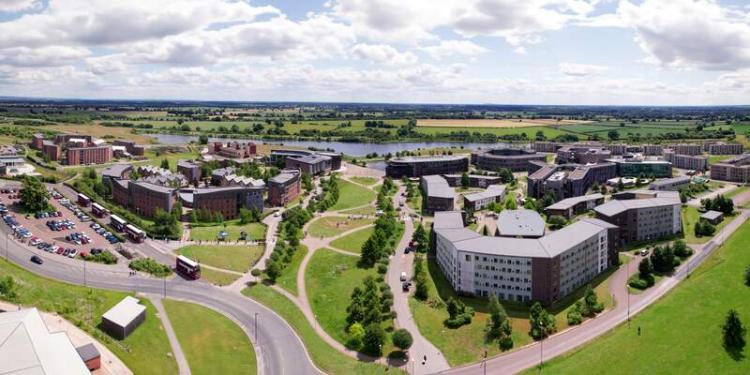Pioneering geothermal energy project at university spearheads York's net zero ambitions
Project is set to become a beacon of sustainable innovation harnessing Earth's clean energy using natural heat to decarbonise campus offering cutting-edge research and solutions
A living laboratory that will drive research, educate students and benefit community and planet has been revealed at the University of York.
The landmark geothermal project aims to cut fossil fuel use across the world-famous campus and spearhead the net zero ambitions for the historic city.
The project, backed by £35 million in funding from Phase 4 of the Public Sector Decarbonisation Scheme, will harness the earth's natural heat to decarbonise the campus, while also providing potential and educational opportunities.

Photo credit: University of York
Our teams at Salix will work with the university over the next few years to deliver the ground-breaking which has been funded by the scheme which is run by the Department for Energy Security and Net Zero.
The campus is located above a significant geothermal resource, offering an opportunity to integrate cutting-edge research with practical solutions. The project is set to become a beacon of sustainable energy innovation so vital in the fight against climate change.
Vice-Chancellor of the University of York Professor Charlie Jeffery said: “This geothermal project is more than just a sustainable energy initiative; it’s a living laboratory that will drive research, educate our students and benefit our community.
“The project’s location enables us to blend academic curiosity with practical application, providing learning opportunities for our students, all whilst contributing significantly to York’s net zero ambitions.
“The support from the Government is a vital catalyst for this transformative endeavour.”
The project will combine geothermal exploration with the university’s expertise in environmental science, engineering, and policy, creating a dynamic environment for research and education.
The initial three-year phase will focus on developing a sustainable heat source to supply the majority of the university’s buildings, significantly reducing its reliance on fossil fuels.
This phase will also serve as a crucial platform for researchers and students to explore the practical applications of geothermal technology, fostering a new generation of sustainable energy experts.
Building upon the initial heat generation phase, a subsequent six-to-seven-year plan will delve into the potential for on-campus electricity generation and the expansion of heat capacity to benefit the wider York community.
This expansion aims to maximise the potential of geothermal energy, creating a sustainable energy hub that not only powers the university but also contributes to York’s energy needs and climate resilience.
Director of public sector decarbonisation at Salix Ian Rodger said: “This is an exciting and ambitious project which will significantly reduce the universities carbon emissions and has the potential to be of even greater benefit for the city of York.
“This geothermal project will be an example of sustainable energy innovation as well as showing us how education, research and community can come together to tackle climate change.”

"This is an exciting and ambitious project which will significantly reduce the universities carbon emissions and has the potential to be of even great benefit for the city of York".
The project is a cornerstone of the university’s Sustainability Plan 2030, targeting a 78% reduction in fossil fuel consumption. This ambitious goal will significantly lower the university’s carbon footprint and play a pivotal role in York’s broader efforts to achieve its climate change targets. The project will directly support the city’s ambitions to become a leader in sustainable living.
Assessment work has already been undertaken, and the next stage is the planning process and regulatory approvals.
At Salix we are currently distributing Grant Offer Letters for Phase 4 of the Public Sector Decarbonisation Scheme. A full list of awards will be published on gov.uk this summer.
For more about this project see the University of York website.



